- Home
- Lisa Gardner
Alone Page 17
Alone Read online
Page 17
When Bobby took his proficiency test each month with his rifle, he never took more than one shot. That was it. You took up to an hour, you set up your shot, and then you fired one single bullet. The cold-bore shot. That's because the very first shot out of any gun had the slug traveling down a cold barrel. That slug heated the barrel, which led to slightly different ballistics for every other shot fired.
As a sniper, the assumption was that he'd never fire any of those other rounds. One shot, one kill, so all that mattered, day after day, training exercise after training exercise, was that single, cold-bore shot.
Now, Bobby plunked down six boxes of ammo. The brass casings jingled inside the containers. He opened the first box and loaded up.
He began with the .38, starting at ten feet to loosen up, then moving the target back to twenty-one. Studies claimed that the average police shooting occurred within twenty-one feet, making it a favorite distance for marksmen. Bobby always wondered who did these studies, and why they never bothered to mention if the police were winning or losing in these infamous shootouts.
He started out horribly. Worst damn shooting of his life, and positively embarrassing for someone who'd earned the NRA classification of High Master. He wondered idly if some private investigator was already waiting in the wings to pluck this target for Bobby's upcoming trial. Guy could hold it up on the stand, with its wildly scattered spray of shots: “See this, your honor. And this is from a guy that State says is an expert.”
Maybe he couldn't shoot paper anymore. Maybe once you'd shot a real person, nothing else would do.
That thought depressed him. His eyes stung. He was sad. He was mad. He didn't know what the hell to feel anymore.
He set down the .38. Picked up the .45. Set it down and, for a long time, simply stood there in the cavernous space, pinching the bridge of his nose and fighting for composure against an emotion he couldn't name.
Down at the far end, the MRA's gun pro, J.T. Dillon, was firing away. After a moment, Bobby stepped away from the shooting line and, receding into the shadows, watched the older man work.
This afternoon, Dillon was firing a .22-caliber target pistol that didn't even resemble a real gun. The handle was a huge wooden grip that appeared less like a handle and more like a rough-hewn slab of tree. The barrel was squared off and edged in silver. The capping scope was bright red. All in all, the piece looked like something out of a Star Wars movie.
In fact, the custom-fit, superlight Italian-made target pistol cost upwards of fifteen hundred dollars. Only the big boys used these kinds of guns, and in the world of competitive shooting, Dillon was considered a very big boy.
Dillon was an IPSC competitor—International Practical Shooting Confederation. These guys were considered the martial artists of combat shooting. They were ranked on time and accuracy as they performed various bizarre drills, say, for example, shooting from the saddle, or running through an urban landscape with a briefcase handcuffed to their dominant hand, or shooting their way out of a jungle with an ankle in a splint. The tougher and nastier the drill, the more the competitors liked it.
IPSC shooters always said that bull's-eye shooting, the kind of sniper drills Bobby performed, was like watching grass grow. Combat shooting was where the real action was.
Now Bobby watched as J.T. Dillon loaded the clip of his custom pistol, placed it in his weaker, left hand, and fired off a quick six rounds. Smooth. Controlled. Never blinking an eye.
Bobby didn't have to look at the target to know all six shots were good. Dillon didn't have to look either. He was already reloading his piece.
By now, Bobby had heard all the rumors—that Dillon was a former Marine, dishonorably discharged. That once he used to live in Arizona, where he'd supposedly killed a man. Maybe it was the jagged scar sometimes glimpsed across his sternum. Or the lean, rangy build the years did nothing to diminish. Or the fact that nearing the age of fifty, he could still cut down any man with his dark, forbidding stare.
Bobby didn't know about those rumors, but being a Massachusetts State Police officer, he knew something about J.T. Dillon very few others did: a decade ago, a former police officer and serial killer named Jim Beckett had broken out of the maximum-security Walpole prison. In his brief few months of freedom, Beckett had sliced a long, bloody swath through various law enforcement agencies, murdering a number of state policemen, including a sniper, as well as an FBI agent.
Bobby didn't know all the details, but the way he heard it, the police weren't the ones who caught Jim Beckett in the end. Dillon did. After Beckett murdered his sister.
Now Dillon looked up from his pistol. He met Bobby's gaze across the way.
“That's the sloppiest damn display of shooting I've ever seen,” Dillon said.
“I'm thinking of burning the target.”
“That assumes you can hit it with a match.”
Bobby had to grin. “True.”
Dillon peered down his scope and Bobby wandered over. He'd never spoken much to Dillon, though both men knew each other by reputation.
Dillon had pushed the target back to fifty feet. Still using his left hand, he sighted the target. He inhaled. He exhaled. He inhaled one more time and Bobby could feel the man's focus as a sudden physical presence. Dillon's finger moved six times, the flexing of his index finger no greater than the whisper of a butterfly beating its wings against the air. Boom, boom, boom, boom, boom, boom. The entire clip was unloaded in three seconds or less.
When Dillon pulled in the target, Bobby shook his head. This time, rather than annihilate the bull's-eye, Dillon had formed a star.
“Show-off,” Bobby said.
“Gives me something to bring home to my girls.”
“Your daughters?”
“Yep. Two of them. One's sixteen, one's six.”
“Do they shoot?”
“Older one, Samantha, she's pretty good.”
Bobby read between the lines. If Dillon said his daughter was pretty good, that probably meant she could outgun Bobby. Considering what Bobby knew of teenage boys, that skill could come in handy.
“And the younger?”
“Lanie? Takes after her mother. Can't stand the sound of gunfire. But she has other skills. You should see her ride a horse.”
“Nice.” Dillon was gathering up his spent casings. Bobby helped him out. The brass was the most expensive part of a bullet. Serious shooters like to reclaim the casings for reuse in their own custom-made ammo. “Married?” Bobby asked now.
“Ten years,” Dillon said.
Ten years with a sixteen-year-old daughter. Bobby did the math on that, then gave up. “What does your wife do?”
“Tess teaches kindergarten. And chases our girls. And tries to keep me out of trouble.”
“Sounds like a good life,” Bobby said.
“It is.”
“Well, I should get back to practicing.” But Bobby remained standing where he was. Dillon was watching him, his gaze expectant. Shooters had a bond others didn't have. They appreciated the art, they respected the technique. They understood that snipers didn't get drawn to the craft because they were budding Dirty Harrys or lone gunmen anxious for another shootout at the OK Corral. Bobby did what he did because the skill challenged him, not because he'd ever wanted anyone to get hurt.
“Was it hard?” Bobby asked quietly. “Afterwards, I mean.”
“After what? After I shot the man in Arizona, or after I shot Jim Beckett?”
“Either one.”
“Sorry to say, son, but I've never killed a man.”
“Not even Jim Beckett?”
“No.” Dillon smiled ruefully, then flexed out his shoulder. “Though it wasn't from lack of trying.”
“Oh,” Bobby said, though he hadn't meant to sound so disappointed.
Dillon looked at him awhile, contemplating. Finally, the man gestured around the empty space. “Ten years ago,” he announced, “I would never have thought I'd be here. Never thought I'd have a wife. Never thought I'd have two daug
hters. Never thought I'd be . . . happy.”
“Because of Beckett?” Bobby asked.
“Because of a lot of things. Maybe I've never killed a man, but for a lot of my life, I came close enough.” Dillon shrugged. “I remember what it's like to sit and wait with your crosshairs sighted on a human head. I know what it's like to will yourself to pull the trigger.”
“I didn't think much of it at the time.”
“Of course not. At the time, you were too busy. At the time, you were doing your job. It's now, in all the hours and days to come, in all the moments when life gets quiet, that you're gonna find yourself remembering again, wondering for the eleven hundredth time what you could have done differently. If you could have done something differently.”
“I keep telling myself it doesn't matter. What's done is done. No use torturing myself with it now.”
“Sound advice.”
“So why aren't I taking it?”
“You never will. You wanna talk about regrets? I can talk about regrets, Officer Dodge. I can give you a whole laundry list of people I wished I had saved and people I wished I had killed. Give me five minutes and a bottle of tequila, and I can destroy my whole life.”
“But you don't.”
“You have to find something, Officer Dodge. Something that anchors you, something that keeps you looking forward, even on the bad days, when you're tempted to look back.”
“Your family,” Bobby guessed.
“My family,” Dillon agreed evenly.
Bobby looked him in the eye. “So who really killed Jim Beckett?”
“Tess did.”
“Your wife?”
“Yeah, that woman can sure wield a shotgun.”
“And she's doing okay with that? Killing him?”
“Honestly? She hasn't touched a gun since.”
C ATHERINE ARRIVED AT the hospital just in time to find her in-laws standing by the nurses' desk.
“I'm the boy's grandfather,” James was saying with his best you-want-to-cooperate-with-me grin. “Of course it's okay for me to take the boy home.”
“Sir, Nathan's mother signed the admit papers. I can't do anything without consulting her.”
“And it's wonderful that you're so diligent. I commend you. Unfortunately, my daughter-in-law is extremely busy with funeral preparations right now. Hence, we were sent to get Nathan. It's the least we could do during this very trying time.”
James tightened his arm around Maryanne. On cue, she joined him in smiling at the nurse. Maryanne was a shade paler than James, dark shadows bruising her eyes, but still with every hair and pearl in place. They made an impeccable united front. The powerful judge and his fragile, charming wife.
Already, the nurse seemed to be weakening.
James leaned forward, pressing the advantage. “Let's go see Nathan. He'll be very excited to go with us. You'll see that it's all right.”
“I should at least consult his doctor,” the nurse murmured, then glanced down at the admit papers and promptly frowned. “Oh dear.”
“What is it?”
“Nathan's pediatrician, Dr. Rocco. I'm afraid . . . Oh dear, oh dear.” The nurse's voice trailed off. She was clearly distressed by what had happened to Dr. Rocco, and now becoming quickly overwhelmed.
Catherine took that as her cue. She walked up to the desk, gaze going straight to the nurse's name tag.
“Nurse Brandi, so good to see you again. How is Nathan this morning?”
“Feeling better,” the nurse said brightly, then glanced nervously from Catherine to James and Maryanne, then to Catherine again.
Catherine decided to solve the dilemma for the woman. She put her hand on her father-in-law's arm. A first-class showman himself, he didn't flinch.
“Thank you so much for helping out,” she told James with a warm smile, then flashed the same grateful grin over at Maryanne. “Fortunately, I finished up at the funeral parlor sooner than I expected, so I came to get Nathan myself.”
“Really, you shouldn't have,” James said. “Maryanne and I would be delighted to watch the boy for a while. You should rest.”
“Yes, dear,” Maryanne echoed. “You must be exhausted. Let us watch Nathan. We have this wonderful room at the Hotel LeRoux. It will be a great treat for him after all this time in a hospital.”
“Oh no. I'm sure after everything Nathan has been through, it would be much nicer for him to go straight home.”
“To the house where his father died?” James asked dryly.
“To the comfort of his own bedroom.”
James thinned his lips. He and Maryanne exchanged glances. Catherine turned swiftly to Nurse Brandi.
“I'd like to see Nathan now.”
“Of course.”
“I'm sure someone must be filling in for Dr. Rocco. Please find that doctor and have him sign the discharge papers so I can take Nathan home.” Catherine held up the Louis Vuitton bag she was carrying. “I'll work on getting my son into his clothes.”
Maryanne spoke up brightly. “Why don't we get him dressed, darling, while you deal with the paperwork? Surely that will be much faster for everyone.”
“Absolutely,” James agreed enthusiastically. “Wonderful idea!”
Catherine was getting a pounding headache. She smiled anyway. “That is so kind of both of you, really. But I just miss Nathan terribly; I can't imagine not seeing him right away.”
“We also can't wait to see our grandson!” Maryanne again, so gay, she sounded brittle.
“You're entirely too kind. But Nathan's health is still very fragile. After everything he's been through the past three days, I think it would be best if he just saw me for now—tone down the excitement. Tomorrow, of course, you're more than welcome to come to our home.” Catherine put her hand on Nurse Brandi's arm, a little more forceful now, a little more insistent. “Nathan?” she prodded.
“Of course.”
The nurse gave James and Maryanne one last uncertain look, then briskly led Catherine down the hall. Behind her, Catherine was keenly aware that her in-laws weren't turning to leave. In fact, at the mention of a replacement doctor for Tony, James had gotten a gleam in his eye.
James and Maryanne never went down without a fight. Most likely, Catherine didn't have much time.
In the curtained-off space, Nathan was sitting up in the hospital bed. His color was better. His abdomen no longer protruded painfully. He still looked tiny to her, lost in a sea of white sheets and black wires. There was nothing quite so grotesque as a hospital gown on a child.
“Baby,” she whispered.
Nathan looked up at her with his solemn blue eyes. He said clearly, “Where's Prudence?”
“Today's her day off,” Catherine said steadily. “I'm going to take you home. Would you like to go home?”
Nathan looked around the room, at the IV, at the heart monitor. “Am I better?” he whispered, looking suddenly and unbearably uncertain.
“Yes.”
He nodded more decisively. “Then I would like to go home.”
“Let's get you dressed.”
Nurse Brandi removed the IV needle, then pushed aside the heart monitor.
“The discharge papers?” Catherine prompted, her gaze already flicking nervously behind her.
“Of course.”
Brandi disappeared down the hallway. Catherine plastered a fresh smile on her face and turned back to her son. “I brought you your favorite outfit. Jeans, boots, the cowboy shirt.”
She briskly opened the bag, laying out the clothes on the edge of the bed. Nathan seemed subdued, but finally, he shrugged off his hospital gown.
“Was it a dream?” he asked.
Catherine knew instantly what he meant. “No,” she said.
“Daddy had a gun.”
“Yes.”
“Is he dead?”
“Yes.”
Nathan nodded and started to pull on his clothes. He had just finished buttoning his flannel cowboy shirt when James and Maryanne appear
ed with a man in surgical scrubs in tow.
“Nathan!” James boomed heartily. “It's my favorite cowboy! Ready to saddle up? Your grandmother and I would love to have you come join us at the Hotel LeRoux. Room service, Nathan. All the hot fudge sundaes you can eat.”
Nathan regarded his grandfather as if he'd sprouted two heads. James rarely paid Nathan quite this much attention. And in fact, ice cream made Nathan unbelievably ill.
Unperturbed, James turned to Catherine. The flush of triumph was unmistakable on his face. “Catherine, meet Dr. Gerritsen, head of Pediatrics. I think you two should have a talk. In the meantime, Maryanne and I will stay here with Nathan.”
Maryanne had already stepped forward, reaching out a hand toward Nathan. The yearning expression on her face was hard to bear. Did she look at her grandson and see her last link to Jimmy? Or did she merely see another kind of a weapon, a living, breathing tool that could be used to hurt Catherine?
Dr. Gerritsen was trying to gesture Catherine out into the hallway. She refused to budge. All James and Maryanne needed was thirty seconds, and Nathan would be gone. Possession, after all, was nine-tenths of the law.
Dr. Gerritsen finally gave up, stepping into the now crowded space and focusing his attention on Nathan. The pediatrician held a chart in his right hand.
“How are you feeling, young man?” Dr. Gerritsen asked.
“Okay.” In fact, Nathan was regarding all four adults nervously.
“According to your chart, everything looks good.”
“Where's Dr. Tony?” Nathan asked.
“Dr. Rocco couldn't be here today, Nathan, so I'm helping out. Is that okay?”
The boy merely stared at Dr. Gerritsen. He didn't like doctors, particularly new doctors, and his gaze said he was already suspicious.
“Would you like to go home?” Dr. Gerritsen asked.
A somber nod.
“Seems like a good idea to me, too. I'll tell you what, sport. Why don't you hang out here for just one more minute, while I talk with your grandparents and mother. Nurse Brandi, want to show Nathan how a stethoscope works?”
Nathan already knew how a stethoscope worked. His gaze flew immediately to Catherine, and she could see his growing panic. She did her best to give him a bolstering smile, though the same panic was already rising in her chest.

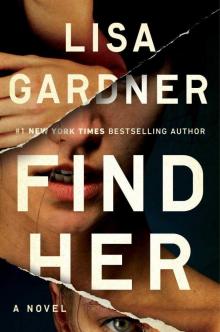 Find Her
Find Her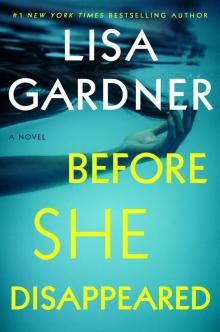 Before She Disappeared
Before She Disappeared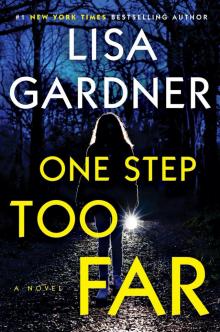 One Step Too Far
One Step Too Far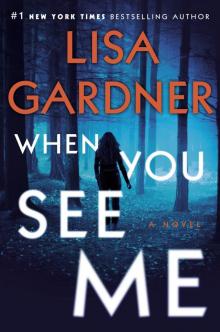 When You See Me
When You See Me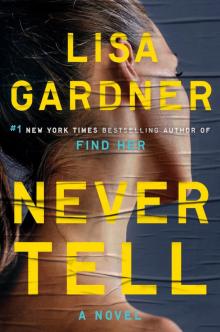 Never Tell
Never Tell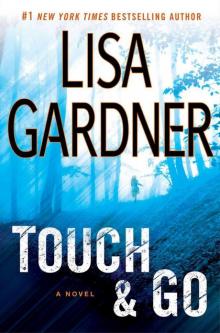 Touch & Go
Touch & Go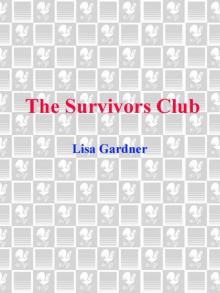 The Survivors Club
The Survivors Club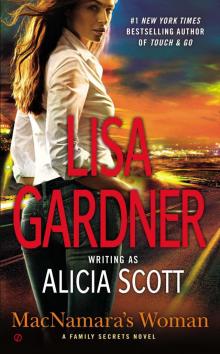 MacNamara's Woman
MacNamara's Woman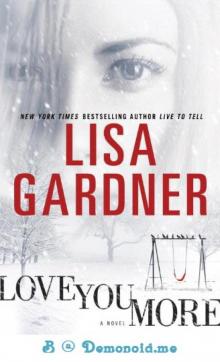 Love You More: A Novel
Love You More: A Novel Gone
Gone The Perfect Husband
The Perfect Husband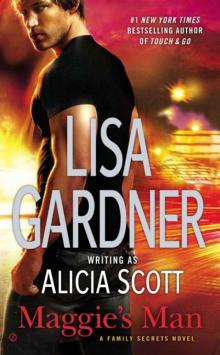 Maggie's Man: A Family Secrets
Maggie's Man: A Family Secrets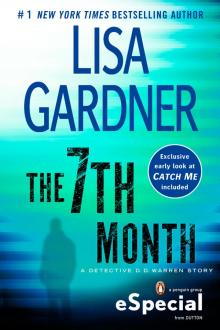 The 7th Month
The 7th Month The Neighbor
The Neighbor Hide
Hide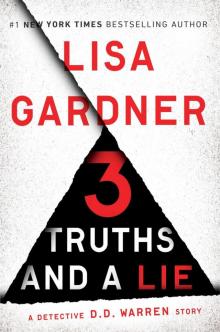 3 Truths and a Lie
3 Truths and a Lie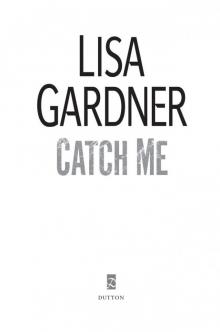 Catch Me
Catch Me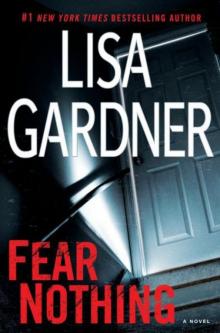 Fear Nothing: A Detective
Fear Nothing: A Detective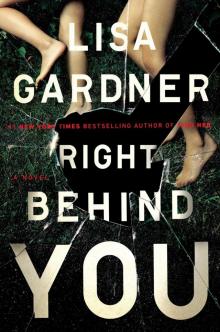 Right Behind You
Right Behind You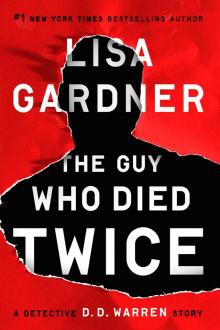 The Guy Who Died Twice
The Guy Who Died Twice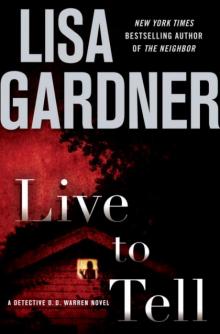 Live to Tell: A Detective D.D. Warren Novel
Live to Tell: A Detective D.D. Warren Novel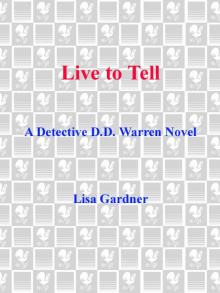 Live to Tell
Live to Tell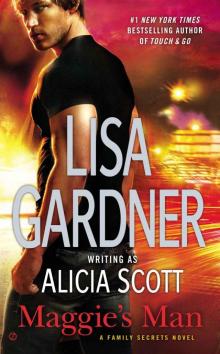 Maggie's Man: A Family Secrets Novel
Maggie's Man: A Family Secrets Novel The Other Daughter
The Other Daughter Alone
Alone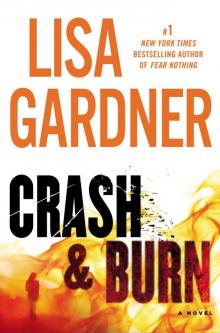 Crash & Burn
Crash & Burn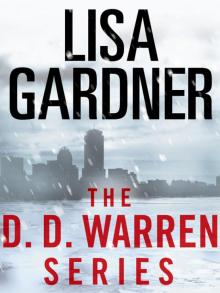 The Detective D. D. Warren Series 5-Book Bundle
The Detective D. D. Warren Series 5-Book Bundle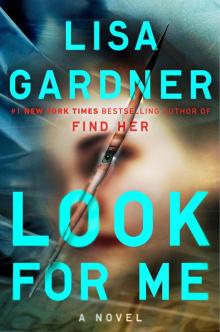 Look for Me
Look for Me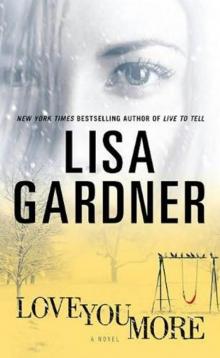 Love You More
Love You More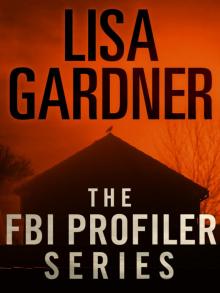 The FBI Profiler Series 6-Book Bundle
The FBI Profiler Series 6-Book Bundle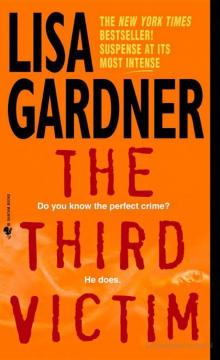 The Third Victim (Quincy / Rainie)
The Third Victim (Quincy / Rainie) Say Goodbye
Say Goodbye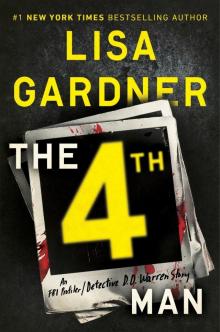 The 4th Man
The 4th Man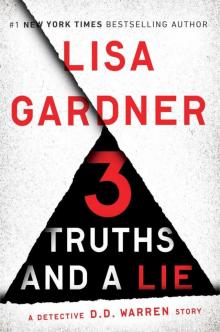 3 Truths and a Lie: A Detective D. D. Warren Story (Kindle Single)
3 Truths and a Lie: A Detective D. D. Warren Story (Kindle Single)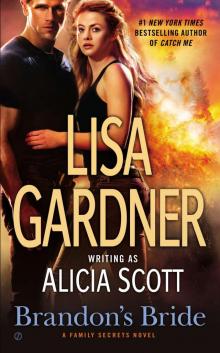 Brandon's Bride
Brandon's Bride